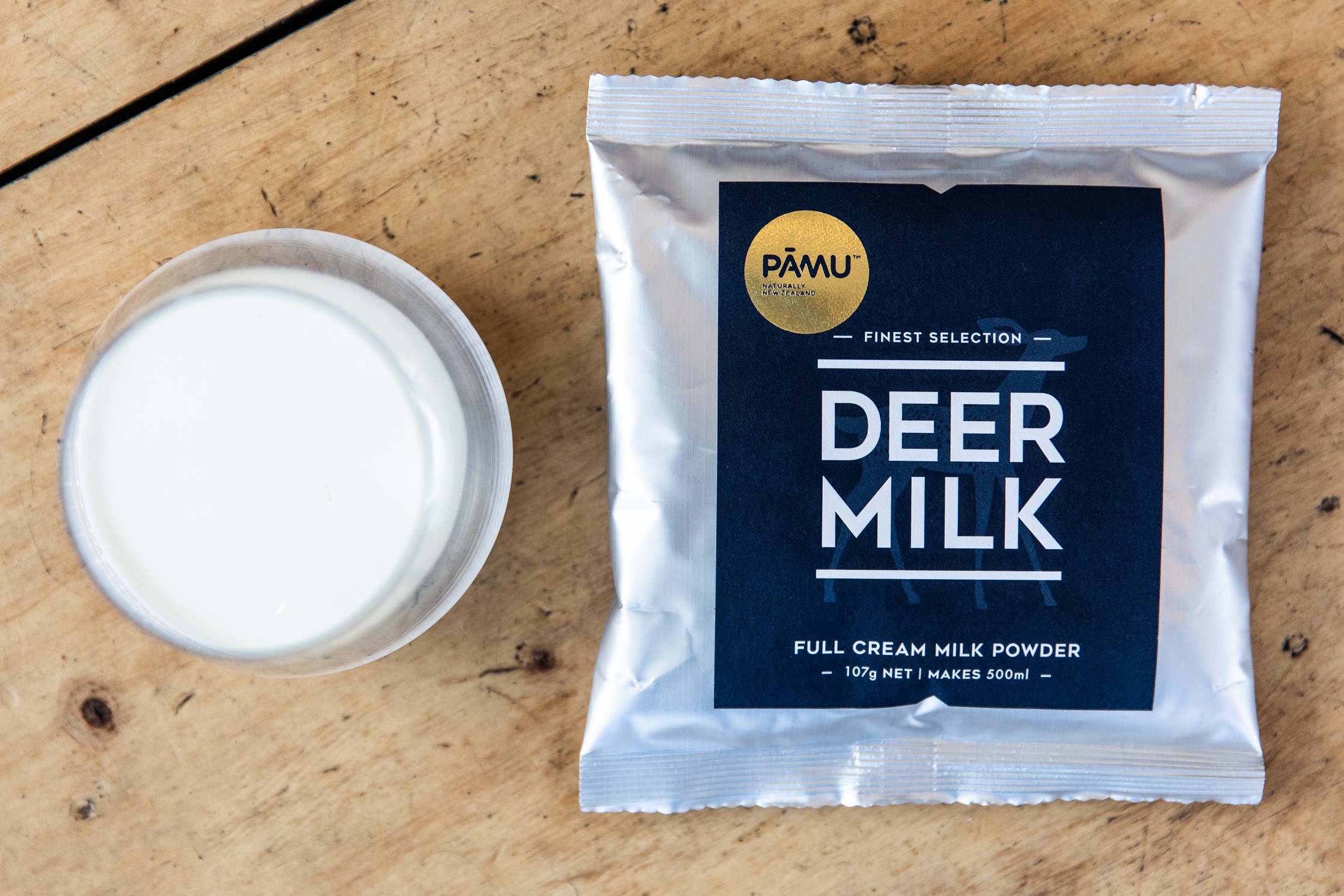The country’s largest farmer is doubling down on the production of its premium deer milk in the coming year as it eyes niche markets in Australia, Korea, Hong Kong and Southeast Asia, writes Catherine Beard.
State-owned Pāmu has a product development work stream underway which will open a new category and market in 2021.
The rollout proves New Zealand’s agricultural industry continues to evolve in response to consumer demand. Spring Sheep, Pāmu’s 50 percent partner, is another example of this previously covered in this column. Spring Sheep’s milk has a lower environmental footprint than cow’s milk and is more digestible for some.
The idea for Pamu’s deer milk variety initially sparked from innovative farmers Peter and Sharon McIntyre who had been milking deer on their farm near Gore.
The concept grew rapidly, with Deerest branded skincare products now being sold in South Korea’s $20 billion a year beauty sector. They are being marketed by Yuhan Corporation, the country’s biggest pharmaceutical company.
Business development manager Hamish Glendinning says Pāmu deer milk is the key active ingredient in a vast range of beauty products which could carve out a niche in the lucrative Asian market.
He says there is still a lot to learn about deer milk, but early success in the foodservice and personal care categories have validated the fact consumers are willing to pay for such a unique ingredient.
“Early scientific research indicated that the milk had unique properties with a range of high-value applications,” he says.
Pāmu is also New Zealand’s largest farmer of deer, which offers the ability to scale over time, he says.
Right now, it is not exporting to China due to market access restrictions. However, it says if these are lifted this market holds the same “great potential” we have seen with other New Zealand primary industry exports.
Glendinning admits deer milk is a “value over volume” play, and it is unlikely to become mainstream because of the price tag.
For consumption, the product has found its home at the premium end of the food trade, in things like luxury desserts. Glendinning says longer term he sees it being sold through premium retail channels as a nutritional supplement. The milk is double the fat, double the protein of cow’s milk, giving it a rich, silky feel and taste. It’s being sold in a powdered format which was tested with chefs as part of the development process.
Desserts made with Pamu’s deer milk already feature on the menu of some of New Zealand’s top restaurants and has won awards for innovation.
A rocky road ahead
Because deer milk is a world first, there has been no shortage of challenges for Pāmu.
“The biggest is probably developing a clear customer value proposition and educating consumers accordingly,” Glendinning says.
But, as a producer of high-quality dairy, and with support of great partners, Pāmu has largely been unaffected by Covid-19.
“We have certainly had an increase in customer enquiries since Covid-19.
“This has been driven by disruptions to exposed supply chains and an increase in consumers searching for New Zealand made health and wellbeing products, which Pāmu offers.”
Catherine Beard is executive director of ExportNZ and ManufacturingNZ, divisions of BusinessNZ – New Zealand’s largest advocacy body. Email [email protected]




